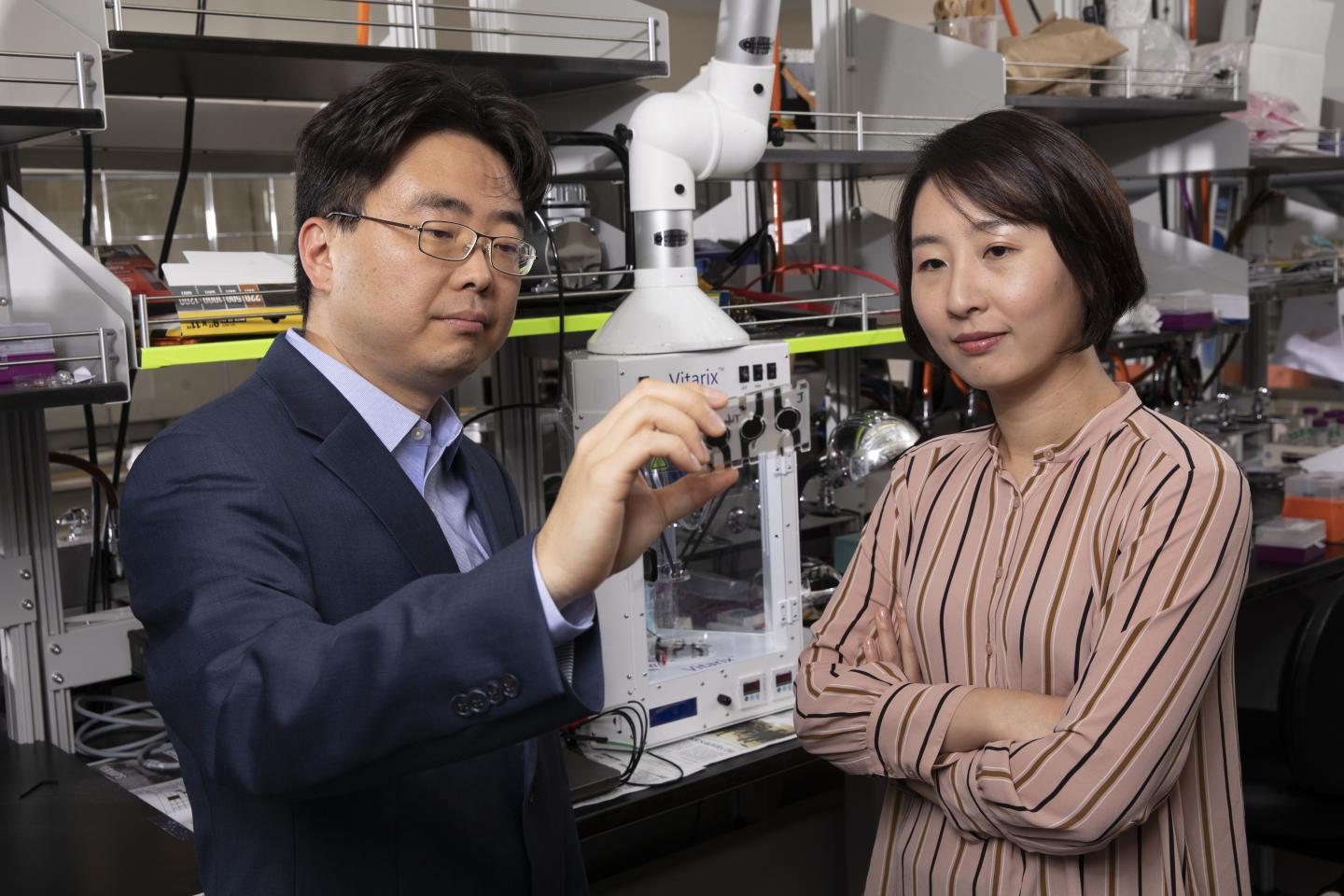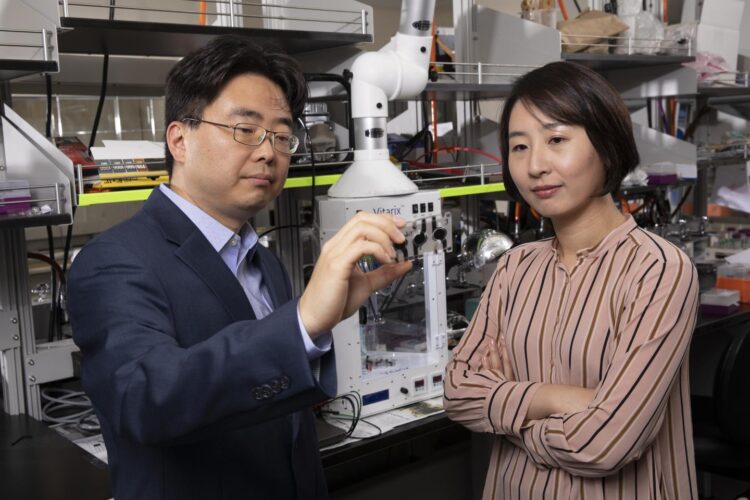
Credit: Binghamton University, State University of New York
A three-year, $345,000 grant from the National Science Foundation will fund research at Binghamton University, State University of New York that seeks to modify paper’s mechanical properties while still retaining its advantages.
In the last decade, paper-based electronics — also known as “papertronics” — have evolved into an eco-friendly alternative because of physical and chemical characteristics such as their light weight, biocompatibility, biodegradability, low-cost manufacturing and foldability.
One thing that current papertronics can’t do, however, is stretch. That can limit its usefulness for biomedical applications both outside and inside the human body.
Leading the research will be Ahyeon Koh, assistant professor of biomedical engineering and Seokheun “Sean” Choi, associate professor of electrical and computer engineering. Last year, the two faculty members received a $452,000 NSF grant to create a power source from human sweat using the metabolisms of sweat-eating bacteria.
The researchers see this new papertronics project as a way to bring together their two areas of expertise.
“Dr. Choi is a pioneer in paper electronics, and I am working on developing soft electronics,” Koh said. “Soft electronics have their own advantages and could be the future of bioelectronics, but they also have limitations. We want to bridge these two areas into one platform of stretchable paper electronics.”
In their research proposal, Koh and Choi outline three main objectives:
- Create a nanofiber with a core of strechable polydimethylsiloxane (PDMS) — a silicone-based and biologically inert material widely used for flexible and stretchable electronics — and a sheath of cellulose. The fiber will be spun into a mesh that will be tested for mechanically and biochemically compatible bioelectronics.
- Test the stretchable paper’s physical, chemical and mechanical properties to discover which fiber diameter and core or sheath thickness works best for the electronics. Conventional printing technologies will be tested to develop the stretchable paper into functional electronics.
- Integrate Choi’s extensive work on paper-based fuel cells powered by microbial interactions so that the electronics have the tiny but necessary electrical charge.
“I believe this stretchable paper will be much better than other materials like textiles in terms of mass fabrication, because we can use any paper manufacturing processes such as roll-to-roll printing, screen printing and dipping,” Choi said. “Many functional inks have nanoparticles or synthetic polymers that can be integrated into the paper for specific functions.”
Koh considers this research as a necessary first step to developing stretchable papertronics: “Once we complete these projects, we will evolve into more specific medical or environmental applications. First we want to provide the fundamentals so that every other scientist can jump in and gain the advantages of these new materials.”
Koh and Choi’s grant, titled “Stretchable Papertronics,” is NSF Award #2020486.
###
Media Contact
John Brhel
[email protected]





